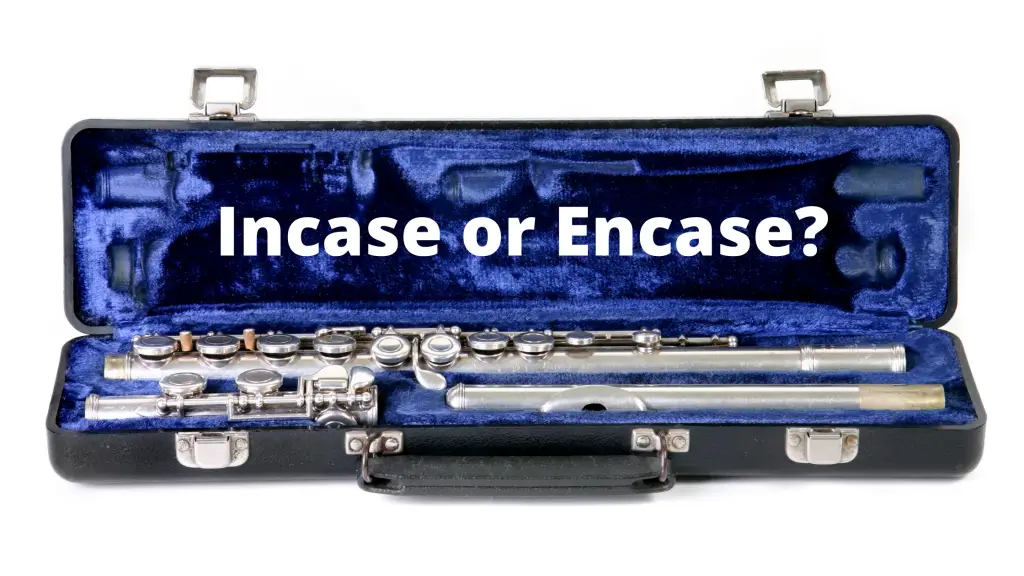Practice English or Spanish with AI here
It is very common for writers to be confused about whether to use incase, in case, or encase in their story. While one will usually be better than the others depending on what you are trying to say, there is only one correct spelling between incase and encase.
The main difference between these three phrases comes from encase and in case. They do not have similar meanings as you might believe, so you need to make sure you are using the right word in the right spot.
In case is used to refer to something actually happening or being true. Incase is a misspelling of the word encase. Encase means to close one object into something else. Many people don’t know that incase and encase mean the same thing. This can be tricky when making sure everyone gets the right information about the two words, as most people aren’t aware of the improper spelling.
In case
In case is a short phrase that refers to something happening or being true. The most popular saying that includes this phrase is “just in case”. This phrase refers to being prepared for both expected and unexpected, but possible, conditions. You might take a sweater to the restaurant with you just in case it’s cold.
Examples
You should bring your dog in case he gets lonely while you are gone.
Get your bag ready just in case you unexpectedly go into labor while we are out.
She whispered into the phone in case her brother was listening to her conversation.
I am going to get some cash just in case the venue doesn’t take debit or credit.
Here’s my number in case you need any extra help.
Make sure you can pull up your GPS in case we get lost.
Incase (Encase)
Incase is a very common misspelling of the word encase. The word encase means that you are closing one thing withing something else. When you close up an envelope before putting it in the mail, you are encasing the contents and keeping them safe. When you get birthday cards, the sender will usually encase money before sealing it up.
Encase also refers to putting something in a case and closing it up. For example, when you put something in your refrigerator and close the door, you are encasing your food.
Examples
Make sure you use tin foil to encase the meat before putting it in the freezer.
When I was younger, my mother would take pictures and encase them for preservation.
It is common for dealers to encase their sale information inside a brochure.
I always use bubble wrap to encase gifts before sending them in the mail.
She watched them encase his leg in a cast after he broke it.
They took the time to encase their hands in plaster to have an eternal set of hands from their family.
How to Remember the Difference
Incase is the easiest to remember. This is because it is a misspelling and should not be used. Instead, you will want to use the real word: encase.
In case is referring to something that might or might not happen. For example, you brought an umbrella when you left the house just in case it rains, but the rain hasn’t been confirmed. You are taking the umbrella if it starts to rain unexpectedly.
If you do mix up these words every so often, don’t get discouraged by it. You might just need to take some extra time to learn what the differences are between each word so you can have a solid understanding of when to use which word. There is one thing for certain, incase isn’t proper and should be avoided.
- 10 Words or Phrases “To Make Her Feel Special” - October 16, 2024
- Synonym Generator - September 11, 2024
- [BrutallyHonest] Langua AI Review – Can you learn a language with AI? - April 23, 2024


